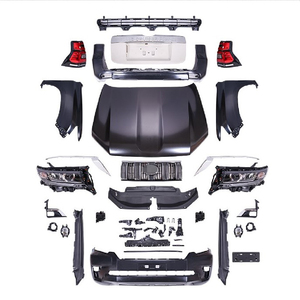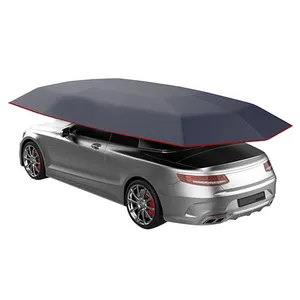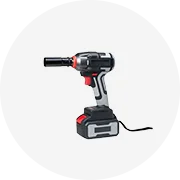Types of 3M Ceramic Window Tint
The 3M ceramic window tint line offers various high-performance options for business buyers. Each type provides unique benefits tailored to different customer needs and preferences:
3M Crystalline Window Tinting
Constructed with over 1,000 optical crystals, this premium film rejects heat and blocks UV rays without altering glass appearance. It maintains high visibility while protecting interiors from heat and harmful radiation.
Best for: Customers wanting maximum heat rejection without dark appearance
3M FX Premium
This dyed window film offers traditional aesthetics with excellent heat rejection. Its scratch-resistant top coat enhances durability while effectively blocking UV rays and reducing glare.
Best for: Budget-conscious buyers seeking UV protection and improved viewing
3M Night Vision
A metalized window film providing superior heat rejection with low visible light reflectance. Available in multiple tint levels with varying solar energy rejection ratings to meet different requirements.
Best for: Enhanced nighttime visibility with daytime heat protection
3M Safety and Security Films
Designed to enhance safety by holding shattered glass together during impacts. These films reduce injury risk, deter intruders, and simultaneously block UV rays and solar heat.
Best for: Businesses prioritizing safety alongside comfort benefits
3M Automotive Window Films
Specifically designed for vehicles, combining safety features with aesthetic benefits. Available in various shades and solar rejection levels to meet diverse customer preferences.
Best for: Vehicle-specific applications requiring customization
3M Color Stable
Utilizes advanced dye technology for rich, deep color that resists fading. Blocks significant infrared light without changing glass appearance while enhancing privacy.
Best for: Long-term color stability and privacy enhancement
Expert Tip: For resellers, maintaining a diverse inventory of 3M ceramic window tint options allows you to meet the varying needs of your customer base. The most popular films tend to be Crystalline for premium customers and Color Stable for those seeking the best balance of performance and value.
Specifications & Maintenance of 3M Ceramic Window Tint
Each 3M ceramic window tint variant offers specific performance characteristics designed to meet different customer requirements:
| Product Line | UV Protection | Heat Rejection | Tint Levels | Warranty |
|---|---|---|---|---|
| 3M Crystalline | 99% | 97% IR Rejection | 200+ shades available | Lifetime |
| 3M Color Stable | 99% | 50% Heat Reduction | 35% and 50% | Up to 15 years |
| 3M FX Premium | 99% | 50% Heat Reduction | 5%, 35%, and 50% | Lifetime |
| 3M Night Vision | 99% | High (Proprietary) | 40% VLT | Lifetime |
| 3M Ceramacrystalline | 99% | 50-80% IR Rejection | 70/50 and 40/20 VLT | Limited Lifetime |
Proper Maintenance Guidelines
Wait Period
Allow 3 days after installation before cleaning to ensure proper curing
Gentle Cleaning
Use baby shampoo mixed with water as a safe cleaning solution
Avoid Abrasives
Never use steel wool, hard scrapers, or abrasive materials
Soft Materials
Clean only with soft cloths or paper towels to prevent scratching
Warning: Using bleach or ammonia-based products will damage window film. Stick to manufacturer-recommended cleaning solutions to maintain film integrity and appearance.
Regular inspection helps identify potential issues early. Clean gently with minimal pressure to avoid streaking. When properly maintained, 3M ceramic window tints can maintain their performance and appearance for many years, providing continued value to customers.
How to Choose 3M Ceramic Window Tint
When stocking 3M ceramic window tint for business resale, consider these key factors to ensure your inventory meets customer demands and regulatory requirements:
Tinting Level Considerations
3M offers various darkness levels that block UV rays and heat while providing different visibility experiences. Stock multiple options to accommodate customer preferences from barely visible to privacy-enhancing darker tints.
Pro tip: Most popular VLT ranges are 35% (balanced) and 15-20% (privacy)
Legal Compliance Factors
Window tinting regulations vary significantly between jurisdictions, with specific limitations on visible light transmission (VLT) percentages. Ensure your inventory complies with local laws to protect customers from legal penalties.
Compliance note: Research state/provincial VLT requirements for your market area
| Selection Factor | Business Consideration | Customer Benefit |
|---|---|---|
| Quality & Performance | Higher-quality tints reduce returns and build reputation | Better heat rejection, UV protection, and longevity |
| Film Thickness | Stock multiple options (1.5-2 mil for standard, 4+ mil for security) | Durability appropriate to customer needs and budget |
| Shade Options | Carry diverse aesthetic options to maximize customer satisfaction | Ability to match vehicle style and personal preferences |
| Size & Pre-cut Kits | Pre-cut kits reduce installation time and increase profit margins | Time savings and better precision for DIY customers |
| Installation Support | Offering professional installation creates additional revenue | Professional results without personal time investment |
Market Strategy Tip: Consider creating tiered product packages combining film types with installation services. Entry-level packages might feature 3M FX Premium with basic installation, while premium packages could offer Crystalline with full-vehicle professional installation and extended warranties.
DIY Installation Guide for 3M Ceramic Window Tint
While professional installation is recommended for optimal results, many customers prefer DIY application to save costs. Below is a comprehensive guide for customers looking to install 3M ceramic window tint themselves:
Required Materials
3M Ceramic Window Film
Spray Bottle with Soap Solution
Precision Cutting Blade
Lint-free Microfiber Towels
Window Cleaning Solution
Squeegee & Heat Gun
Installation Process
Thorough Window Preparation
Clean windows meticulously with ammonia-free cleaner. Remove all dust, dirt, and adhesive residue. Pay special attention to edges and corners where debris commonly accumulates. A perfectly clean surface is essential for proper adhesion.
Film Measurement and Cutting
Cut film approximately 1-2 inches larger than the window dimensions. This provides margin for error during installation. For complex window shapes, create templates using paper before cutting the actual film.
Solution Application
Mix a solution of mild soap and water (2-3 drops of baby shampoo per liter of water). Spray this solution liberally on both the window surface and the adhesive side of the film to facilitate positioning.
Precise Film Positioning
Apply the film with the adhesive side facing the window. Align carefully from top to bottom, ensuring even coverage. The soapy solution allows repositioning during this critical phase.
Bubble and Water Removal
Using a squeegee wrapped with a soft cloth, work from the center outward in overlapping horizontal strokes. Apply firm, consistent pressure to expel water and air bubbles. Pay extra attention to edges.
Edge Trimming and Finishing
Once positioned, trim excess film using a sharp blade held at a 45-degree angle. Follow window contours precisely. After trimming, squeegee edges again to ensure complete adhesion.
Curing Period
Allow windows to remain closed for at least 3-5 days (longer in humid conditions). Full curing takes 30-60 days, during which minor haziness and small water bubbles will gradually disappear.
Important: Do not roll down windows during the curing period. This can cause the film to peel or develop permanent creases. Avoid washing or cleaning the windows for at least one week after installation.
Frequently Asked Questions
3M ceramic window tint utilizes advanced nano-ceramic particle technology that blocks UV rays and heat without interfering with electronic signals. Unlike conventional dyed polyester tints that offer basic heat and glare reduction, ceramic tints provide superior heat rejection (up to 80% of infrared radiation), maintain their color longer, and don't interfere with GPS, cellular, or radio signals. This technology allows 3M ceramic tints to achieve better performance with lighter shades, offering improved visibility while maintaining heat rejection properties.
No, 3M ceramic window tinting is engineered to resist fading. While conventional dyed window films often fade or turn purple after prolonged sun exposure, 3M ceramic window tints maintain their appearance for the duration of their warranty period. The nano-ceramic technology used in these films creates color stability through a non-metallic, non-fading composition that withstands years of UV exposure. This color stability is one of the key selling points that justifies the premium price of 3M ceramic products.
Yes, 3M ceramic window tint provides exceptional value through multiple benefits:
- Superior heat rejection (up to 97% of infrared radiation)
- 99% UV protection to prevent interior fading and skin damage
- Exceptional clarity and non-metallic composition that won't interfere with electronic signals
- Increased driving comfort through glare reduction
- Enhanced vehicle aesthetics and privacy
- Potential energy savings from reduced air conditioning use
- Long-term durability backed by manufacturer warranties
These benefits make 3M ceramic tints a cost-effective long-term investment for both commercial resellers and end users.
The complete curing process for 3M ceramic window tint typically takes 30 to 60 days, depending on climate conditions. During this period, small water bubbles and slight haziness will gradually disappear as the adhesive fully bonds to the glass. While the initial drying period requires keeping windows rolled up for 3-5 days, complete optical clarity develops over the full curing period. Customers should be advised that the appearance will continue to improve over this timeframe, and any minor imperfections that remain after the full curing period may indicate installation issues.









































































































































































































































































 浙公网安备 33010002000092号
浙公网安备 33010002000092号 浙B2-20120091-4
浙B2-20120091-4